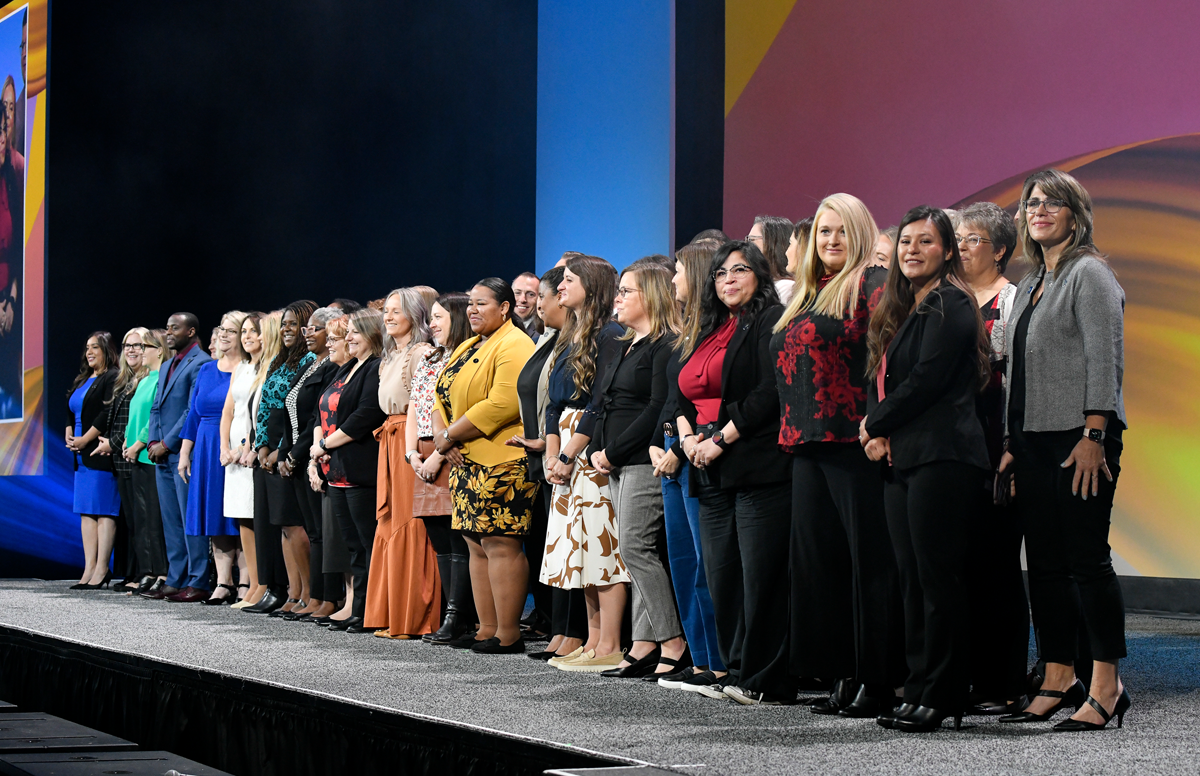Since LeadingAge’s founding of the Center for Aging Services Technologies (CAST), a core tenet is its commitment to understanding and implementing emerging tech that can improve the aging experience. Who better to help shed light on the “how” of that than those who work aging services–and, in particular, LeadingAge members? Through the Action Learning Project (ALP) component of LeadingAge’s Larry Minnix Leadership Academy, fellows identify and hone the direction of a project that, by design, is intended to unfold over time, with the goal of advancing innovation or improvement within their organizations.
Several of the Academy’s 2024 alumni–all employees of LeadingAge members–explored technology’s use, potential and application in aging services. Fueled by a conviction that technology can improve care and older adults’ quality of life, each fellow chose a focus area or topic with which they had some familiarity. “My interest in exploring a technology-focused project was inspired by the residents of my community,” said Nikki Nelson, sales manager at The Sharon at South Park. Nelson, who delved into the creation of an easy-to-use platform to help community members connect and share resources. “Tech is supposed to make life easier yet the tools often feel out of reach,” she explains in her ALP video. “There’s a critical gap between accessibility and viability.” She envisions a platform that allows community members to post requests to address everyday needs, within the safe boundaries and comfort of their own community.
For all of its promise, tech in aging services also presents challenges–a truth that spurred Alexandra Flannery, Health Informatics Officer at LeadingAge CAST Patron Westminster-Canterbury on Chesapeake Bay, Virginia Beach, VA, to take action. As explained in her ALP video, her “crucible moment” occurred in 2009 when the Centers for Medicare & Medicaid Services (CMS) released a new program that incentivized health systems to use electronic health records (EHR) but excluded long-term care. Learning about the program, she thought, “Great! New technology, monetary incentives.” But EHR implementation, she learned from colleagues, was stymied by lack of resources and of sustainable technology management. Her goal: to create “well-invested and sustainable use of technology” to build a center for excellence in health information technology (IT) that supports the clinicians who support residents and, in turn, deliver positive resident outcomes.
Like Flannery, Ezra HaLevi created his project from a desire to find solutions to aging services’ existing problems and issues, including demographics and workforce challenges. HaLevi, executive director of Jewish Home Assisted Living at LeadingAge CAST Patron Jewish Home Family in Rockleigh and River Vale, NJ, believes robotics and artificial intelligence (AI) “will play key roles in the future of the care we provide.” In assessing how best to use these technologies, he explains in his ALP video, it is always important to ask, “Does the technology preserve independence, and will it enhance dignity?” HaLevi advocates for creating standards that enable older adults to help evaluate technology in development, rather than after design, and for embracing robotics innovations that enable human interactions to last longer.
“I hope to simultaneously affect the culture on the technology side to include the important factors to measure the impact and benefit of a given technology for elders, as well as eliminate some of the stigma and dystopian associations with utilizing robotics to deliver better care – automating what can be automated so there is more time for human interaction,” he explains.
Interested in learning more about the Leadership Academy and the opportunity to explore technological solutions for your community? Applications for the 2026 program will be available in May 2025.

 Shutdown Week Three: Impact of Ongoing Closure on Affordable Housing
Shutdown Week Three: Impact of Ongoing Closure on Affordable Housing Colleagues on the Move, February 18, 2026
Colleagues on the Move, February 18, 2026


